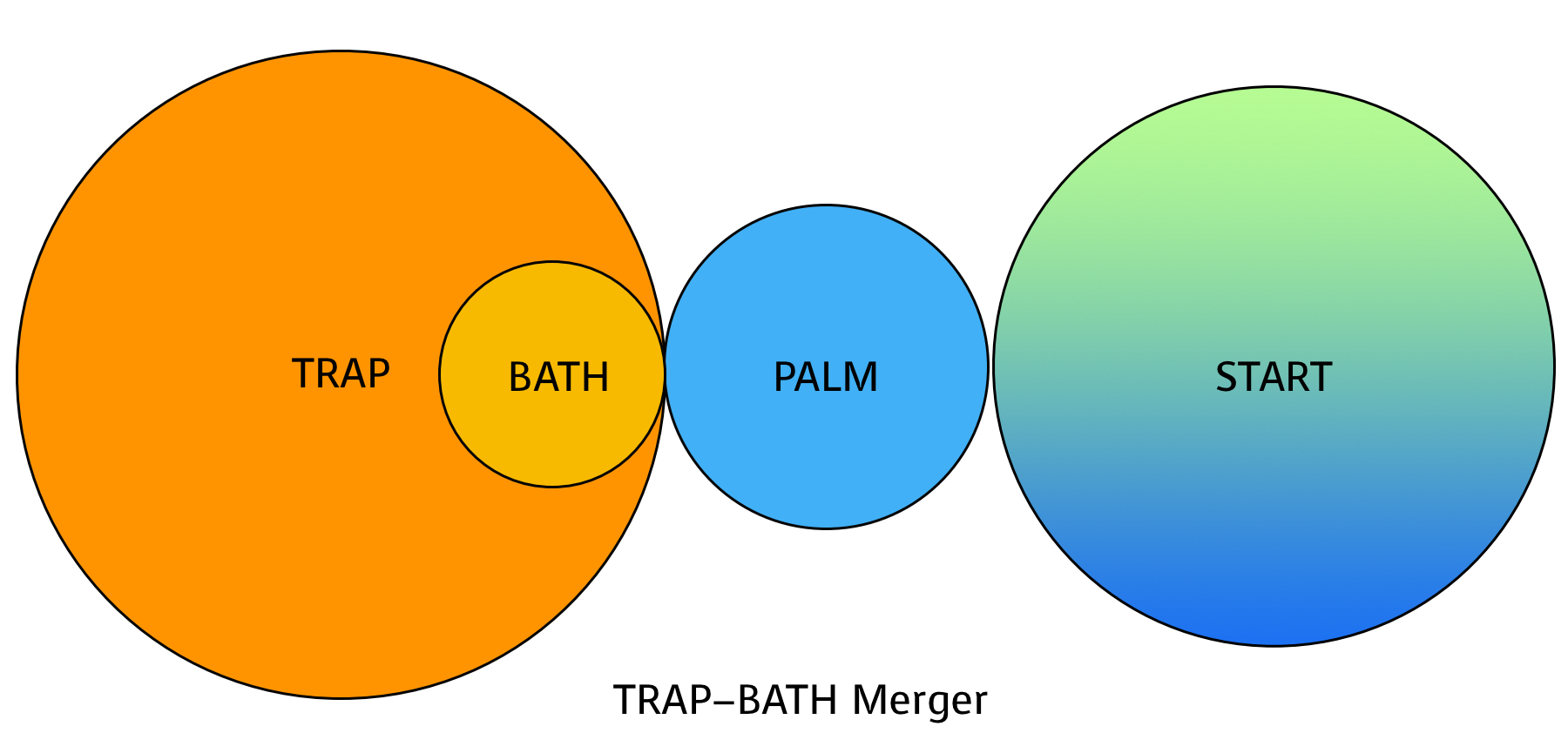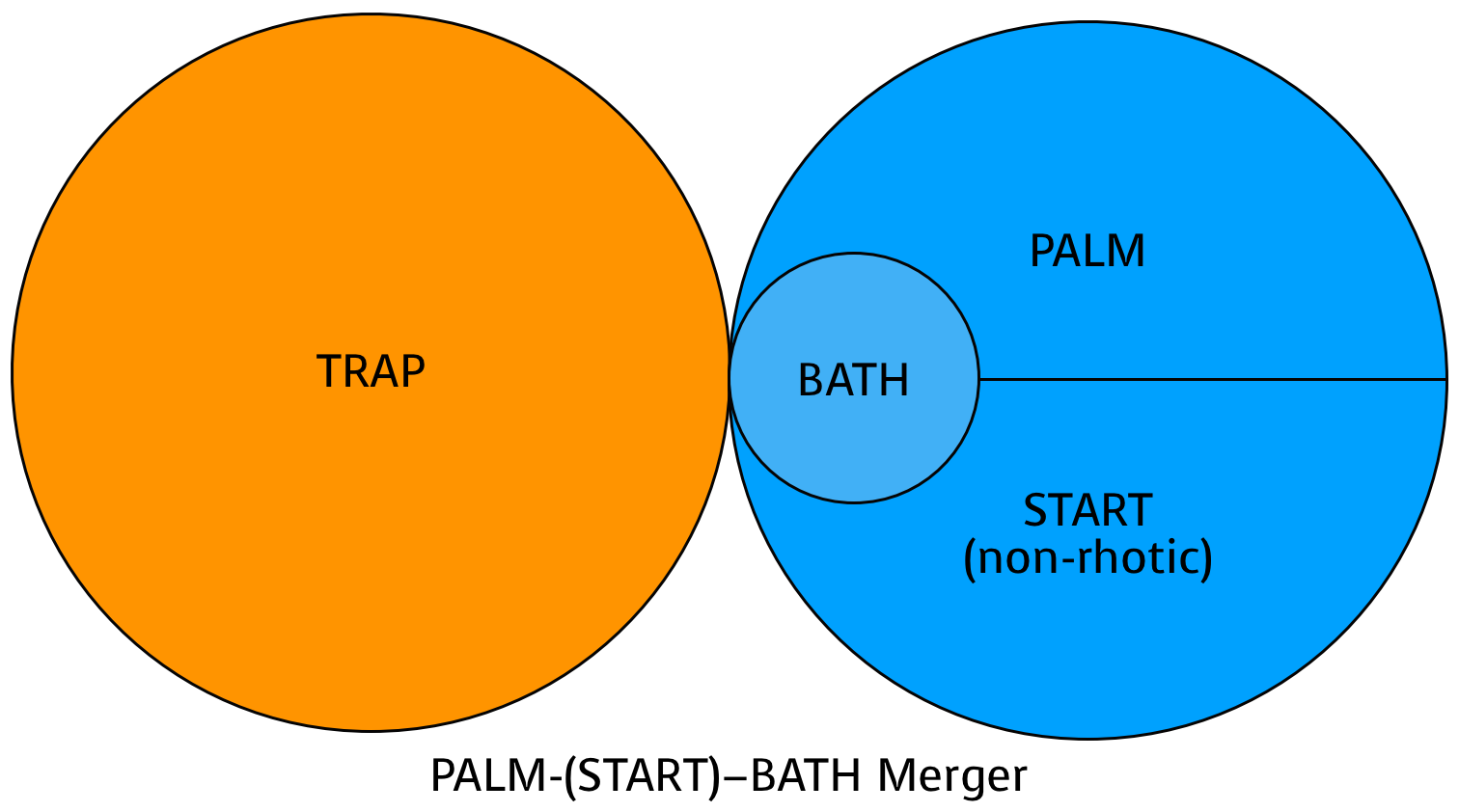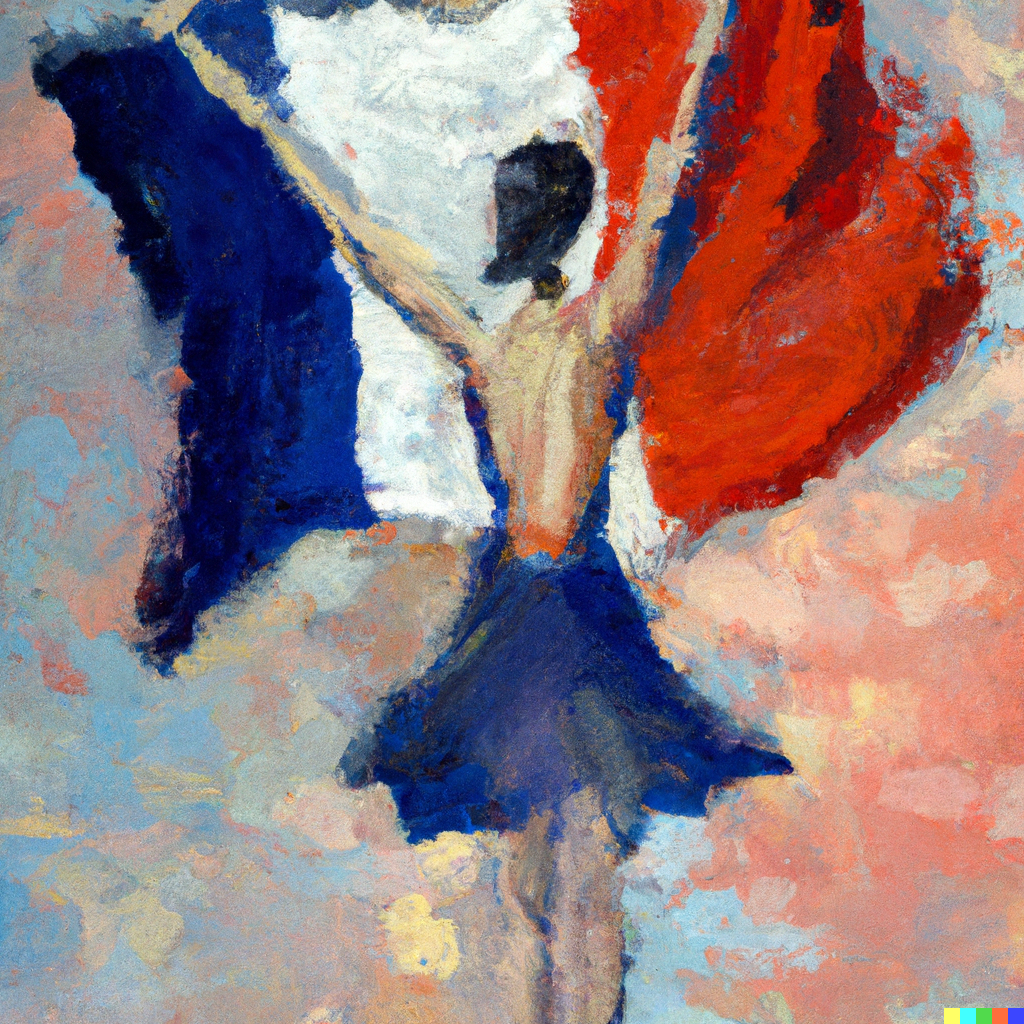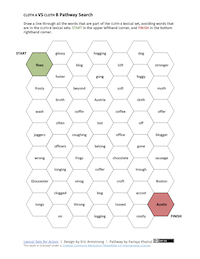7 The BATH Lexical Set
The bath lexical set is one of those sets that can only be found in Checked syllables. We find bath in either stressed or unstressed syllables. Like the cloth lexical set, bath is merged in most accents with another lexical set; there are very few accents where bath is pronounced with its own, unique vowel. For the most part, bath is either merged with the trap lexical set—which is generally the case in the accents of North America and the North of England—or with the palm lexical set, as found in the non-rhotic accents in the South and Southeast of England, as well as in varieties found in South Africa, New Zealand, Australia. In these accents, palm is also merged with start. In some accents of Scotland, trap, bath and palm are all merged as one.


bath evolved in England, first as a lengthened version (allophone) of the trap vowel in certain specific settings. Over time, those lengthened vowels moved back to merge with palm, and, as these English accents were non-rhotic, with start. As this was associated with what were then the high prestige accents of the south of England, and RP in particular, bath frequently has served as a mark not only of accent identity, but also of social status. This book primarily focuses on vowel quality as it relates to the lexical sets, but since length has such a significant role in bath’s development, it is worth noting that in some accents where trap and palm/start/bath sound essentially the same, they are recognized as having different lengths, with trap being short, and bath et al having the potential for length.
One can’t discuss bath without also speaking of distribution. While exhaustive lists have been compiled of which words are (or have been) part of Received Pronunciation’s implementation of bath, other accents may not be the same. RP also has some words that are inconsistent in their pronunciation, which Wells dubbed as bath prime; these are words in free variation, where multiple pronunciations of a word are tolerated as being acceptable.
A study[1] of bath in Cardiff, Wales gives an interesting sociolinguistic perspective on how the lexical set is changing in one community. With evolving social expectations around class, speech and identity, some middle class bath pronunciations (traditionally merged with palm/start) are shifting towards one that is associated with the working class (i.e. merged with trap). Though middle class Cardiff speakers in the study said almost all bath words with palm/start, a small list of bath words, such as answer, example, chance, advantage, are now being pronounced with trap. However, the evidence also shows that some working class pronunciations in that same community have shifted towards that which is traditionally associated with the middle and upper classes (i.e. some bath words, such as after, last, class are pronounced with palm/start.) In fact, among working class speakers, a far greater number of commonly used words in the bath Lexical Set are now pronounced with palm rather than with trap.
In accents where bath is merged with trap, and where trap/bath can be split—such as in urban centers in the northeastern US such as NYC, Boston, or Philadelphia, many of the words in the bath set are part of that split, usually with a long, centring diphthong [iə̯ ~ eə̯ ~ ɛə̯], e.g. dance, daft, path. See the trap Lexical Set for more information on the trap split.
- ☑️ Checked: requires a following consonant, and cannot exist on its own
- in both stressed and unstressed syllables
Spellings
Ⓐ aF, aFC: -aff, -ath, -ass, -aft, -asp, -ast, -ask, -augh ;
Ⓑ aN, aNC: -ance, ant, -anch, CVCand, -ample;
Ⓒ -alf, -alv, -an’t, 🔎
bath prime is a group of words with trap in GenAm, but which go back and forth between trap and palm in RP.
Learning to identify bath, on the surface, seems like it should be fairly simple. For Wells’ subset Ⓐ, it’s ‹a› before a fricative (F) such as path, staff, brass, or a fricative plus another consonant (FC), as in gasp, past, castle; for subset Ⓑ—given an alternate keyword of dance by some linguists—it’s ‹a› before a nasal (N), such as banana, panorama, or a nasal plus another consonant (NC), as in example, dance, demand, chant. Subset Ⓒ is that group of bath words that are inconsistent as to whether they are bath or trap in RP, the English accent Wells referenced when writing Accents of English. What makes it difficult is that, for almost as many of those that are fairly easily identified, there are exceptions. So we have bath example, but trap ample; bath class, but trap classic; bath plaster, but trap plastic. Generally, what this means is that if you can identify the spellings where bath is possible, you can then look up the word of the check to see if it is pronounced as either trap or palm/start.
Looking Up bath Words:
 At the end of this section is a list of bath words that can be very helpful. For example, if you’re working on an RP English accent, there are many choices for you. As the list of words which belong to bath can change over time, it helps to find a pronunciation dictionary for the appropriate period of the text you’re working on. Daniel Jones’s English Pronouncing Dictionary is one such dictionary, and there are many editions that have been published over the 20th Century. For a contemporary English accent, you might refer to the Current British English Dictionary, cube.elte.hu⧉. For other accents or regions you may have to do some serious sleuthing to find a dictionary that can help you out.
At the end of this section is a list of bath words that can be very helpful. For example, if you’re working on an RP English accent, there are many choices for you. As the list of words which belong to bath can change over time, it helps to find a pronunciation dictionary for the appropriate period of the text you’re working on. Daniel Jones’s English Pronouncing Dictionary is one such dictionary, and there are many editions that have been published over the 20th Century. For a contemporary English accent, you might refer to the Current British English Dictionary, cube.elte.hu⧉. For other accents or regions you may have to do some serious sleuthing to find a dictionary that can help you out.
As we’ve had with other sets, Wells identifies three subgroups for bath, each of which might behave differently in different accents. Group Ⓐ words, where ‹a› is followed by a fricative, or a fricative+stop cluster, are consistently pronounced with palm in all accents that do the bath/palm merger. Group Ⓑ words, where ‹a› is followed by a nasal, or nasal+stop cluster, are sometimes said with trap in Australia and accents of the Caribbean. Group Ⓒ words, where ‹a› is followed by -lf, -lv, -nt, and various other irregular forms, generally are merged with palm in accents of the North of England where groups Ⓐ and Ⓑ are merged with trap.
In the South of England, bath Ⓐ, Ⓑ, and Ⓒ are all merged with palm.
In Australia and the Caribbean, bath Ⓐ and Ⓒ are merged with palm, while bath Ⓑ (followed by a nasal) is merged with trap.
In the North of England, bath Ⓐ and Ⓑ are merged with trap, while bath Ⓒ is merged with palm.
Wells’ set bath prime is the group of words that are inconsistently merged with palm or trap in Received Pronunciation, and so fall into a grey zone between the two sets. Perhaps the largest group of these bath prime words are those that have the trans- prefix.
Pronunciations
The bath lexical set is generally pronounced with either the vowel of trap, which is frequently [æ ~ a] (see the trap lexical set), or palm, which often is [ɑ] (see the palm lexical set), and can be pronounced with any of the vowel options discussed in the chapters dealing with those sets. In some accents, such as in Northern Ireland and Scotland, trap can be merged with palm, so in that case all 3 sets are pronounced with the same vowel, [a̠ ~ ɐ̞ ~ ɑ̟].
In very rare instances, bath can have its own vowel, often midway between trap and palm, creating a 3-way split. In North America, the most well-known instance of this kind of accent is the so-called “Mid-Atlantic” accent. This accent is similar in some respects to the historical New England accent, which pronounces bath with [a]. However, bath is merged with palm/start in New England, and so it doesn’t have the same 3-way split that Mid-Atlantic has. Though elites of the Northeast US spoke with an accent similar to the Mid-Atlantic accent in the late 19th and early 20th century, it disappeared “in the wild” following WWII. However, this accent continued to be used in the American theatre through to the end of the 20th century as a high status, or prestige accent for classical text, and was sometimes used as a way to homogenize and whitewash regional accents and sociolects. Based upon principles first created by William Tilly and promoted most famously by Edith Skinner and her students, “Good Speech” for the American Stage was most clearly defined in Skinner’s book Speak with Distinction. The accent featured a hybrid built from aspects of what were then high status American and British accents (thus Mid-Atlantic, halfway between England and the US), and in particular the bath lexical set was pronounced with the “intermediate” ‹a›, [a], while trap was [æ] and palm was [ɑ]. Skinner called the bath lexical set the “Ask List.”
Personal Pronunciation
⚠︎ If you haven’t reviewed the trap and palm lexical sets first, you might want to go do that now.
To begin, let’s look at whether bath is merged with trap or palm in your idiolect. Compare words in these lists to see whether they match or are different. If the pronunciations of the words in the following two columns are the same, you likely have a trap/bath merger; if they are different, then it is likely that you have a palm/bath merger.
| trap | bath |
| ample, trample | example, sample |
| can, cannot*, cant | can’t |
| lather*, rather | gather, slather |
| bass (🐟), sass, crass | class, pass, brass |
Of course, it’s possible that you might have an accent that merges all three of these sets, especially if you’re from Scotland.
| trap | bath Ⓐ | palm |
| tack | task | taco |
| plastic | plaster | plaza |
| bat | bath | balm* |
| rat | ranch | ramen |
| rad | raft | RADA |
| graphic | graph* | (Mardi) Gras |
⚠︎bath Ⓑ, and some bath Ⓒ words that have a nasal following the vowel, could easily be part of the trap split (e.g. [ɛə̯]), if you have it.
| trap | bath Ⓑ | palm |
| Dan | dance | Dante |
| man | demand | Oman |
| Sam | sample | saga |
| trap | bath Ⓒ | palm |
| can | can’t | Kanye |
| shack | shan’t | Shah |
| lack | laugh | lama |
Assuming that your bath words sound either like trap or palm, you don’t need to figure out your personal pronunciation for bath: you’ve already done that with those other two sets.
However, many people may find that the vowel quality of the bath list of words is inconsistent in their idiolect—some words are merged with palm, while others are merged with trap. The facts seem to bear out the idea that bath is a set on the move, that the words that are members of the lexical set behave less consistently within some speech communities, and so a speaker may, for example, have bath Ⓑ words, but not bath Ⓒ words, or she might have a very spotty, inconsistent list of words that are merged with palm, but most other bath words are merged with trap. While I frequently imagine that my bath words are all merged with trap, I frequently find that I have words that sit in the grey-zone between trap and palm, with a third vowel all its own, [a].
If you have a third pronunciation for bath words, that is neither the same as trap nor palm, then you do want to explore your personal pronunciation. Working with a classmate, friend, coach or teacher, or on your own, go through the words from the list below to identify how your bath vowel compares with the way(s) others say it. One strategy to try is lengthening the sound of your bath vowel so that you can hear its quality more clearly, and then explore moving around where it’s articulated in your mouth within the vowel space—up, forwards, down, and back—by very small movements. You should feel the top surface of the back your tongue moving towards/away from the roof of your mouth, in the direction of the space just behind the alveolar ridge. What’s the smallest noticeable change that you can make?
If your bath vowel is (use the symbol that is most appropriate for your speech)
- high, use the raised diacritic [ a̝ ], a small T pointing up
- open, use the lowered diacritic [ a̞ ], a small T pointing down
- pushed forward, use the advanced diacritic [ a̟ ], a tiny plus sign +
- pulled back, use the retracted diacritic [ a̠ ], a tiny minus sign –
- moved toward the middle of the mouth, towards schwa [ə], use the mid-centralized diacritic [ a̽ ], a tiny x-marks-the-spot above the symbol,
Alternate Pronunciations
Experiment with the Word Lists, Phrases and Sentences with the following vowels:
As you play with the vowels using the qualities offered here, see whether that modified oral posture might affect the articulation of consonants and other vowels in the word in similar ways. Does it remind you of an accent other than your own?
Word Lists for bath, sorted by the consonant that follows
KEY: ◾︎bath in stressed syllable ◽︎bath in unstressed syllable
PLOSIVES
bath does not occur after a plosive
NASALS
bath words followed by nasals are bath Ⓑ
-mp
-n
-ns
-nʃ
-nt
-nd
-ntʃ
FRICATIVES
-θ
-ð
-f
-ft
-v
-s
-sk
-st
-z
-ʃ
-ʒ
There are no bath words with -r
-ɹ (see the start lexical set)
-l/ɫ
Short Phrases
- On behalf of the calf.
- A laughing giraffe.
- I said “footpath”, not “bloodbath”.
- A half-hour before Flagstaff.
- We laughed about the aircraft.
- Sample the raspberries at Belfast Castle.
- Your aunt’s* planter from Flanders.
- The dancer from France was entrancing.
- Contraltos and sopranos.
- The lance-corporal went “commando”.
- The Castleford Craft Show.
- Xander demanded we play Minecraft.
- Tanya’s brass hip-flask.
- The pasha butterfly landed on the basket.
- Shape the branch into an arrow shaft.

Sentences
Level 1
Short with 2-3 words, underlined
- Sample the eggplant parmigiana.
- Mariana is demanding an answer.
- Commander Sanderson was slandered.
- Riding on the towpath is faster than boating in the canal.
- A bad example of a cast photograph.
Level 2
Short with 4-5 words, underlined
- Fill my glass with a craft beer from Wylam’s in Newcastle.
- The enchanting belly-dancer glanced at Francis.
- I got a bank draft rather than using my MasterCard to buy the aircraft.
- In order to multitask, they listened to half-a-dozen podcasts on fast speed.
- In the past, the upper-class chancellor was a laughing stock.
Level 3
Medium with 3-4 words, not underlined
- The staff at the spa’s mudbath cleaned half-heartedly.
- I spilled ranch dressing on the path to the chancel.
- The life-raft from the sunken hovercraft was found near the Mariana Trench.
- The fiberglass personal watercraft was a blast to race.
- The advantage of the cloth mask over the N95 is that it lasts longer.
Level 4
Hard with 4-6 words, not underlined
- The last contact with the Mars Pathfinder spacecraft was in 1997.
- Mr. Sanders’s half-sister surpassed her brother in basketball skill.
- Demand for Rabindranath Tagore’s last poems rose after the broadcast.
- Let’s share a glass of raspberry lemonade this afternoon, Grant.
- The master plasterwork on the bathroom ceiling features branching roses and baskets of tulips.
Mergers
The trap-bath Merger is found in most of English speaking North America, and in much of the North of England; meanwhile in much of the rest of the English-speaking world, bath is merged with palm, and in non-rhotic Englishes, with start. In fact, this whole chapter has essentially been about learning to distinguish between trap, bath (and palm). There are very few minimal pairs/homophones with trap and bath, though a few examples include: ante/auntie, cant=Kant/can’t, plantar/planter; there are near-minimal pairs with gather~blather~slather/lather~rather, lass~mass/class~brass, sociopath~math/ path~bath.
- If you have the trap–bath merger, differentiate them in the following sentences: [æ/ɑ̟, a/ɑ̠, ɐ̞/ɒ, ɛ/ɑ, ɛ̠ə̯/a, eə̯/ɑ̟].
- If you don’t have the merger, try to make them match using either your person trap vowel, or one that is new to you: [æ, a, ɐ̞, ɛ, ɛ̠ə̯, eə̯].
- The cat’s fatherp can’t catch half the mice it will have to.
- Patrick sat in the enchanting bathroom in the aftermath of dancing with the daft actor.
- The montagep of the masked man in the last scene was masterfully performed by the acting class.
- Actually, Dad’s Newcastle Brown Ale, served in dirty glasses, tasted rather ghastly.
- It was laughably bad casting to choose Wolfgang to play the Nazip commander.
- The ample free samples of veggie lasagnap were an example of the chancellor’s substantial bravadop.
The palm–bath Merger is found in the South of England and (to some degree) in some accents of India, Australia, New Zealand and South Africa. In many of these mostly non-rhotic regions, palm–bath then also merge with start. In some of these regions, bath Ⓑ is “split” off, and merged with trap, while the remainder (bath Ⓐ and Ⓒ) are merged with palm (see bath Ⓑ Split, below). While there were very few minimal or near-minimal pairs for trap–bath, there are almost none for palm–bath, apart from father/rather. At a stretch (?): (tabula) rasa/raspberry, casa/class, kava/cadaver, naan/banana.
- If you have the palm–bath merger, differentiate them in the following sentences: [ɑ̟/æ, ɑ̠/a, ɒ/ɐ̞, ɑ/ɛ, a/ɛ̠ə̯, ɑ̟/eə̯].
- If you don’t have the merger, try to make them match using either your person palm vowel, or one that is new to you: [a, a̠, ɑ̟, ɑ, ɒ].
- Mama laughed at Papa as he played basketball in his sandalst and bathrobe.
- Cassiet’s class painted their crafts with gouache in the style of Picasso.
- The basso, alto and soprano felt the tenor’s vibrato was too fast on the last note of the cantata.
- After the palm tree, the road branches off to get to Cary Grant’s old Colorado ranch.
- The façade of the working-class bar was plastered with posters for Lady Gaga.
- My podcast about tacos and guacamole passed half a million downloads this afternoon.
The trap–bath–palm Merger, found in Scotland and parts of Northern Ireland, merges all three ‹a› vowels into a single group, in or around [a ~ ɐ]. There are no minimal triplets for these merged sounds, though the rhyming gather/rather/father is as close as you’re going to get! If you have this merger, you can use sentences 1–12 above to practice avoiding the merger; if you don’t have the merger, try making all the trap–bath–palm words in sentences 1–12 match using any of these options: [a, a̠, ɐ̞, ɐ, ɑ̟].
-
- My father made a travel plans to Yokohama to visit my aunt in the last week July.
- This afternoon, Nadia built a panda sanctuary on Minecraft Java Edition.
- The soprano jazz singer demanded half of the solos as she claimed to have the best vibrato.
Splits
The bath Ⓑ Split, occurs in most of Australia where bath Ⓐ and Ⓒ words are merged with palm/start [ɐ], while bath Ⓑ is merged with trap [ɛ̞ ~ a]. Note that in the state of South Australia (and its capital, Adelaide), this doesn’t occur, and all of bath, generally, is merged with palm/start. If you have this split, try to make the bath Ⓑ words in the sentences below match the bath Ⓐ and Ⓒ words with [ɐ]; if you don’t have the split, try it out by using the contrast [a/ɐ] for Ⓑ/Ⓐ+Ⓒ.
The in-demand Master craftsman’s plasterwork featured many branching plants.
Review
Pathway Puzzles

Pathway Puzzles allow you to practice finding members of a lexical set. Choose the next cell with the FIRST lexical set word to make a pathway from the START of the puzzle down to the FINISH. Open the KEY document to see the solution, and check your work. Pathway Puzzles were created by Farisya Khairul, through support from a AMPD Minor Research Grant.
bath-palm Pathway Puzzle | KEY
bath-trap Pathway Puzzle | KEY
trap-bath-palm Pathway Puzzle | KEY
List of bath Words
abaft
advance, -s
advanced
advancement,-s
advancing
advantage
advantaged
after
“after” prefixes
aftermath,-s
afternoon
afterward,-s
aghast
alabaster [ˈælə.bastɚ]
Alabaster
alas ([æ] in R.P.)
answer, -s
answering
ask, -s
asked
asking
aunt, -s
auntie, -s
autograph, -s
avalanche, -s [ˈævəˌlantʃ]
avast
bask, -s
basked
basket, -s
basketball, -s
basketful, -s
basketry
basketwork
bath
bath-brick, -s
bath-chair, -s
bathroom
behalf
blanch, -es
Blanche
blanched
blanching
blast, -s
blasted
blasting
blast furnace, -s
blastment, -s
blast-pipe, -s
branch, -es
Branch
branched
branching
branchless
brass, -es
brass band, -s
[ˈbrasˈbænd]
brass-founder, -s
brass-hat, -s
brassie, -s (golf)
brassier (more brassy)
brassiest
brassy
broadcast, -s
calf
calf’s-foot
calfskin
calve, -s
calved
calves’-feet
calve-skin
calving
can’t
cask, -s
casked
casket, -s
casking
cast, -s
castaway, -s
caste, -s
caster
Castelnau
casting, -s
casting-net, -s
casting-vote, -s
cast-iron
castle, -s
Castlebar
Castlerea(gh)
Castleton
castoff, -s
castor, -s
Castor
castor oil
cenotaph, -s
chaff, -s
chaff-cutter, -s
chaffed
chaffer, -s (n.)
chaffer (v.) [‘tʃæfə]
chaffiness
chaffing, -Iy
chaffless
chaffy
chance, -s
chanced
chancel, -s
chancelle-ries
chancelle-ry
chancellor, -s
Chancellor
chancellorship,-s
chancer
chanceries
chancery
Chancery
chancier
chanciest
chancing
chancy
chandler, -s
Chandler
chandlery, -ies
chant, -s
chanted
chanter, -s
chantey
chanties
chanting
Chantrey
chantries
chantry
Chantry
chanty
clasp, -s
clasped
clasping
clasp knife, -ves
class, -es
classes
classier
classiest
classiness
classing
classman
classmate
classmen
classroom, -s
classwoman
classwomen
classy
command, -s
commanded
commander, -s
commanding, -ly
commandment, -s
commando, -s
counterblast, -s
countermand, -s
countermanded
countermanding
craft, -s
craftier
craftiest
craftily
craftiness
craftsman, -men
“craft” suffixes
daft
dafter
daftest
daftly
daftness
dance, -s
Dance
danced
dancer
dancing
deathmask, -s
demand, -s
demanded
demanding
disadvantage, -d, -s
disaster, -s
disastrous, -Iy
disastrousness
distaff, -s
downcast
downdraught, -s
draft, -s
drafted
drafter, -s
drafting
draftsman, -men
draught, -s
“draught” prefixes
draughtier
draughtiest
draughtily
draughtiness
draughty
draughtsman, -men
encephalograph, -s
enchant, -s
enchanted
enchanter, -s
enchanting, -ly
enchantment
enchantress, -es
enclasp, -s
enclasped
enclasping
engraft, -s
engrafted
engrafting
engraftment
enhance, -s
enhanced
enhancement, -s
enhancing
ensample, -s
entrance, -s (v.)
entranced, -ly
epigraph, -s
epitaph, -s
everlasting, -ly
everlastingness
example, -s
exampled
exampling
Falstaff
fast, -s
fasted
faster, -s
fastest
fasting
fastness
fast-day, -s
fasten, -s
fastened
fastener, -s
fastening
fastness, -es
“fast” suffixes
flabbergast
[ˈflæbɚˌɡast]
flabbergasted
flabbergasting
Flanders
flask, -s
flasket, -s
forecast, -ed, -ing, -s
France
Frances
Francies
Francis
free lance, -s, -ed
gasp, -s, -ed
gasping
ghastlier
ghastliest
ghastliness
ghastly
giraffe, -s
glance, -s
glanced
glancing, -ly
glass, -es
glass blower, -s
glass blowing
glass-cutter
glassful, -s
glass house, -s
glassier
glassiest
glassily
glassiness
glass-paper, -s
glassware
glass work, -s
glasswort
glassy
graft, -s
“graft” suffixes
grafted
grafter, -s
grafting
grant
Grant
granted
grantee, -s
granting
grantor, -s
graph, -s
“graph” suffixes
Grasmere
grasp, -s
grasped
grasper, -s
grasping, -ly
grass, -es
grass-cutter, -s
grassed
grass-green
grasshopper, -s
grassler
grassiest
grassing
grass land
grass widow, -s
grass widower, -s
grassy
half
“half” prefixes
halve, -s
halved
halving
handicraft, -s
[ˈhændɨˌkɹaft]
hasp, -s
hasped
hasping
headmaster
hereafter
impassable, -bly
implant, -s, -ed, -ing
indraught, -s
lance, -s
Lance
lanced
lance corporal, -s
lancer, -s
lancet, -s
Lancet
lancing
Lancing
last, -s
lasted
lasting, -ly
lastly
lath, -s
lather, -s
lathered
lathering
lathwork
lathy
laugh, -s
laughable
laughableness
laughably
laughed
laugher, -s
laughing, -ly
laughing gas
laughingstock, -s
laughter
mask, -s
masked
masking
masque, -s
mast, -s
master, -s
“master-” prefixes
“-master” suffixes
mastered
masterful, -ly
masterfulness
mastering
masterpiece, -s
mastery
masthead, -s
mastiff, -s, ([æ] in R.P.)
mischance, -s
mooncalf
mooncalves
nastier
nastiest
nastily
nastiness
nasty
outcast, -s
outcaste, -s
outcasted
outcasting
outclass, -es
outclassing
outlast, -s
outlasted
outlasting
overcast
overglance, -d, -s
overtask, -ed, -ing, -s
paragraph, -s
[ˈpæɹə.ɡɹaf]
paragraphed
paragraphing
pass, -es
passed
passable, -ness
passably
passbook, -s
passer, -s
(passer sparrow—[æ])
passerby
passersby
passing
passkey, -s
passman, -men
Passover, -s
passport, -s
password, -s
past
pastime, -s
past master, -s
pastor, -s
pastoral, -s
pastoralism
pastorate, -s
pasturage
pasture, -s
pastured
pasturing
path, -s
pathfinder, -s
Pathfinder
pathless
pathway, -s
perchance
planch, -es
planchette, -s
plant, -s
planted
planter, -s
planting
plaster, -s
plastered
plasterer, -s
plastering
prance, -s
Prance
pranced
prancer, -s
prancing
quaff, -s ([ɒ] in R.P.)
quaffed
quaffer, -s
quaffing
raft, -s
rafted
rafter, -s
raftered
rafting
rascal, -s
rascalities
rascality
rascally
rasp, -s
rasped
rasping
raspberries
raspberry
raspiness
raspy
rather
recast, -s
recasting
repass, -es
repassed
repassing
repast, -s
repasture
reprimand, -s
reprimanded
reprimanding
salve, -s ([æ] in R.P.)
salved
salving
sample, -s
sampled
sampler, -s
sampling
schoolmaster, -s
shaft, -s
Shaftsbury
shan’t
slander, -s
slandered
slanderer
slandering
slanderous, -Iy
slanderousness
slant, -s
slanted
slanting, -Iy
slantwise
staff, -s
staffed
staffing
stagecraft
stanch, -es
stanched
stanching
stanchion, -es
statecraft
steadfast, -ly
steadfastness
steadfast
supplant, -s
supplanted
supplanter, -s
supplanting
surpass, -ed, -es
surpassing, -Iy
taft, -ed, -s
tafting
task, -s
tasked
tasking
taskmaster, -s
taskmistress, -es
telecast, -s
telegraph, -s
telegraphed
telegraphing
thereafter
topmast ([æ] also)
trance, -s
transplant, -s
[ˈtɹænzˈplant]
transplantable
transplanted
transplanting
trespass, -es ([ə] also)
trespassed
trespasser, -s
trespassing
unstanch
unsurpassed
upcast, -s
vantage, -s
vast
vaster
vastest
vastly
vastness
vasty
waft, -s
waftage
wafted
wafting
witchcraft
wrath ([ɒ, ɔ] in R.P.)
wrathfully
- Mees, I., & Osorno, C. H. (2017). The Complexity of the bath Words in Cardiff English. Linguistica, 57(1), 229-245. https://revije.ff.uni-lj.si/linguistica/article/view/491⧉ ↵
- If you have this or the following pronunciation on some bath words, it is likely that you have a “split trap” set, rather than a separate bath pronunciation. See the trap lexical set for more details. ↵
A phonetically distinct variant of a phoneme, used in different circumstances. For example, in the speech of many Canadians, the vowel of "lout" is a distinct allophone [əʊ] when compared to the vowel [aʊ] in "loud," both of which are from the MOUTH lexical set, with the phoneme /aʊ/. "Allophonic" (adj.) refers to this kind of variation.
The sound of a particular vowel which result from the positions of the vocal tract, including tongue, the lips, and the velum, as well as the pharynx, and larynx (to a lesser degree) during its articulation.
The rules that govern where a lexical set can appear in a given language. Complementary, contrastive, and Free variation are all possibilities.
Where two or more vowel sounds can be used in a word with no variation in meaning; both pronunciations are deemed appropriate (though one may be thought more prestigious in some communities)
A historical process whereby one phoneme (or lexical set) subdivides into two or more phonemes/ lexical sets.

